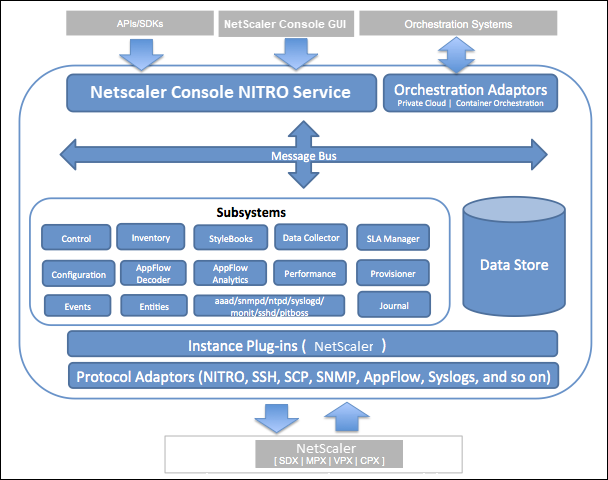-
-
-
-
Scenarios for Flexed or Pooled license expiry and connectivity issues behavior
-
Configure NetScaler Console as the Flexed or Pooled license server
This content has been machine translated dynamically.
Dieser Inhalt ist eine maschinelle Übersetzung, die dynamisch erstellt wurde. (Haftungsausschluss)
Cet article a été traduit automatiquement de manière dynamique. (Clause de non responsabilité)
Este artículo lo ha traducido una máquina de forma dinámica. (Aviso legal)
此内容已经过机器动态翻译。 放弃
このコンテンツは動的に機械翻訳されています。免責事項
이 콘텐츠는 동적으로 기계 번역되었습니다. 책임 부인
Este texto foi traduzido automaticamente. (Aviso legal)
Questo contenuto è stato tradotto dinamicamente con traduzione automatica.(Esclusione di responsabilità))
This article has been machine translated.
Dieser Artikel wurde maschinell übersetzt. (Haftungsausschluss)
Ce article a été traduit automatiquement. (Clause de non responsabilité)
Este artículo ha sido traducido automáticamente. (Aviso legal)
この記事は機械翻訳されています.免責事項
이 기사는 기계 번역되었습니다.책임 부인
Este artigo foi traduzido automaticamente.(Aviso legal)
这篇文章已经过机器翻译.放弃
Questo articolo è stato tradotto automaticamente.(Esclusione di responsabilità))
Translation failed!
Architecture
The NetScaler Console database is integrated with the server, and the server manages all the key processes, such as data collection, NITRO calls. In its data store, the server stores an inventory of instance details, such as host name, software version, running and saved configuration, certificate details, entities configured on the instance. A single server deployment is suitable if you want to process small amounts of traffic or store data for a limited time.
Currently, NetScaler Console supports two types of software deployments: single server and high availability.
The following image shows the different subsystems within NetScaler Console and how communication happens between the NetScaler Console server and managed instances.

The Service subsystem in NetScaler Console acts as a web server that handles HTTP requests and responses that are sent to subsystems within NetScaler Console from the GUI or API, using ports 80 and 443. These requests are sent to the subsystems over the message bus (message processing system) by using the IPC (inter-process communication) mechanism. A request is sent to the Control subsystem, which either processes the information or sends it to the appropriate subsystem. Each of the other subsystems—Inventory, StyleBooks, Data Collector, Configuration, AppFlow Decoder, AppFlow Analytics, Performance, Events, Entities, SLA Manager, Provisioner, and Journal—has a specific role.
Instance plug-ins are shared libraries that are unique to each instance type supported by NetScaler Console. Information is transferred between NetScaler Console and managed instances by using NITRO calls, or through the SNMP, Secure Shell (SSH), or Secure Copy (SCP) protocol. This information is then processed and stored in the internal database (data store).
Share
Share
In this article
This Preview product documentation is Cloud Software Group Confidential.
You agree to hold this documentation confidential pursuant to the terms of your Cloud Software Group Beta/Tech Preview Agreement.
The development, release and timing of any features or functionality described in the Preview documentation remains at our sole discretion and are subject to change without notice or consultation.
The documentation is for informational purposes only and is not a commitment, promise or legal obligation to deliver any material, code or functionality and should not be relied upon in making Cloud Software Group product purchase decisions.
If you do not agree, select I DO NOT AGREE to exit.